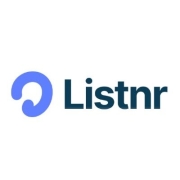Text-To-Speech Services offer advanced solutions to convert text into human-like speech, enhancing accessibility and engagement across digital platforms.
Comprising cutting-edge technologies, these services enable businesses to create audio content efficiently. They support a broad range of languages and voices, providing realistic speech synthesis suitable for various applications, from e-learning to customer service automation. These services integrate easily with existing systems and can be tailored to meet specific business needs, providing flexibility and scalability.
What features stand out in Text-To-Speech Services?Text-To-Speech Services are instrumental in industries like education and healthcare, where they facilitate easier access to information and services. In the automotive industry, they enable voice command systems, enhancing driver safety and experience. Media companies utilize these services to create podcasts and audio versions of their content, broadening their consumer base.
Text-To-Speech Services are valuable for businesses seeking to enhance user engagement, accessibility, and content delivery. They enable companies to reach wider audiences and adapt to diverse consumer needs, making them a key component in modern digital strategies.
| Product | Market Share (%) |
|---|---|
| Microsoft Azure Speech Service | 21.9% |
| Amazon Polly | 20.3% |
| Google Cloud Text-to-Speech | 20.3% |
| Other | 37.5% |






























Utilizing Text-To-Speech Services on your website can significantly enhance user engagement by making your content accessible to a broader audience, including those with visual impairments and learning disabilities. It provides an audio alternative to textual content, allowing users to listen while multitasking. This can result in longer site visits and reduced bounce rates, as users can consume content in a manner that suits their preferences and lifestyles.
What are the key benefits of incorporating Text-To-Speech Services in e-learning platforms?Text-To-Speech Services enhance e-learning platforms by offering audio alternatives to text-based content, which can aid auditory learners and those with reading difficulties. This accessibility feature supports inclusive education, allowing more learners to access and benefit from educational material. Additionally, it enables students to consume coursework on the go, providing flexibility and convenience in their learning experience.
How do I integrate Text-To-Speech Services into my mobile app?Integrating Text-To-Speech Services into your mobile app involves leveraging APIs offered by service providers such as Google Cloud Text-to-Speech or Amazon Polly. Begin by reviewing the documentation provided by your chosen vendor, implementing the API into your app's codebase, and testing the feature thoroughly. Ensure the implementation aligns with your app's user experience design, offering users seamless access to voice functionalities.
What factors should I consider when selecting a Text-To-Speech Service provider?When choosing a Text-To-Speech Service provider, consider factors such as voice quality, language support, customization options, ease of integration, cost, and customer service. It's crucial to ensure that the service aligns with your target audience's needs, offering natural-sounding voices and the languages required for your business. Evaluate the provider's reputation, reading reviews and testimonials from other users to make an informed decision.
How secure are Text-To-Speech Services for sensitive information?Security is a paramount concern when using Text-To-Speech Services, especially for sensitive information. Reputable providers implement robust security measures, including data encryption and compliance with industry standards like GDPR or CCPA. Before selecting a provider, verify their security protocols and consider running a security assessment. Always ensure user data is handled according to your organization's privacy policies and legal requirements.